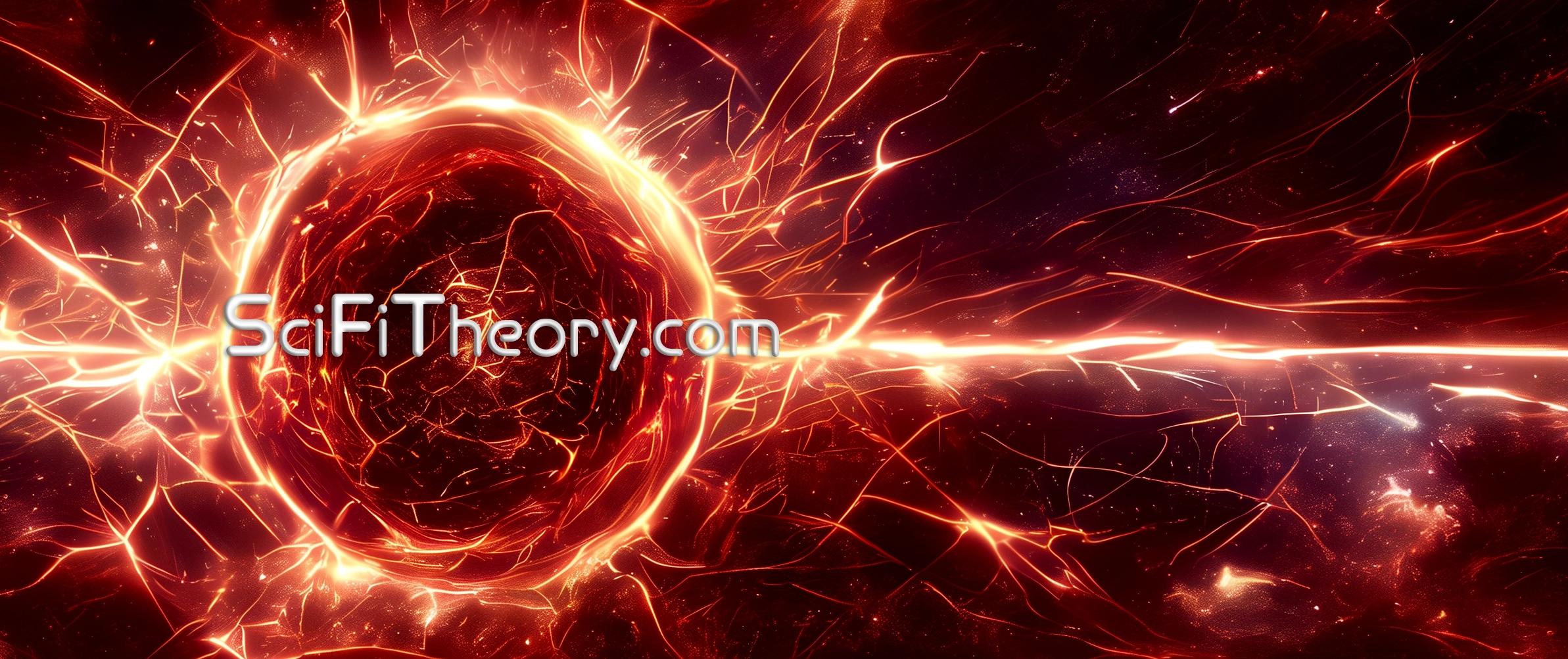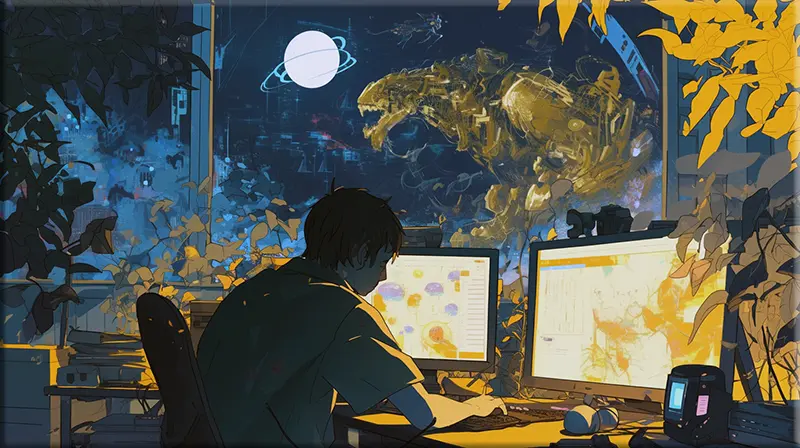Hypothesis & Theory
A literary hypothesis is essentially a roadmap for discovering deeper meanings within a text. Imagine it as the starting point of an exploration, where a critic or scholar sets out to test an idea that could explain a particular theme, character, or structural choice within a work. Like any hypothesis, it’s not a fixed answer but rather an open question, one that invites analysis and debate.
For example, let’s say a critic is drawn to the recurring imagery of water in Virginia Woolf’s *To the Lighthouse*. A literary hypothesis might propose that water represents the fluidity of time, reflecting how memory and the present blend in the characters’ lives. This hypothesis would serve as a lens through which the critic examines Woolf’s language, her structural choices, and even her narrative style. Guided by this idea, the critic would look at passages where water imagery appears, noting how Woolf might be using it to emphasize time’s relentless flow or its soothing, yet unsettling presence in the characters’ experiences.
The strength of a literary hypothesis lies in its ability to shed light on multiple layers of meaning within the text. Drawing from different critical perspectives, a hypothesis might approach the text through historical context (examining the work within the period it was written), biographical insight (considering the author’s life experiences), or psychoanalytic theory (exploring subconscious desires or fears embodied by characters). Each approach provides a unique pathway to interpret the text, enriching the reading experience and inviting new connections.
For instance, a historical hypothesis might consider how *To the Lighthouse* reflects post-World War I disillusionment, suggesting that Woolf’s depiction of her characters’ shifting relationships mirrors the era’s broader sense of instability. In this view, Woolf’s structural fragmentation—a hallmark of modernist literature—might symbolize a society grappling with loss, change, and the search for continuity.
Literary hypotheses, like scientific ones, rely on evidence, though here the evidence is rooted in close reading and textual analysis. The critic gathers supporting details, examining specific passages, language choices, and structural patterns to see if they align with or challenge the hypothesis. In doing so, the critic builds a compelling case—or perhaps discovers new questions that refine or even dismantle the original hypothesis.
Ultimately, a literary hypothesis enriches both the analytical process and the reader’s engagement with a text. It doesn’t seek to “solve” the text but to open new pathways for exploration, offering a flexible yet structured approach to understanding the intricate connections that give literature its enduring impact.
Literary theory serves as a compass for navigating the many layers within a text, providing structured perspectives that allow critics to uncover nuanced meanings and contextual insights. Essentially, a literary theory is a set of interpretive tools, each crafted to reveal different dimensions of a work. Like a painter’s palette, these theories offer a spectrum of colors—structuralism, post-structuralism, feminism, Marxism, psychoanalysis, postcolonialism, and beyond—each adding a unique shade to the analysis. The theory chosen becomes the lens through which we examine the work, and it shapes how we perceive its themes, characters, and overall structure.
Each theory has its own priorities. Structuralism, for example, looks for the underlying structures that shape narratives, language, and cultural patterns, while post-structuralism takes that structure apart, questioning fixed meanings and emphasizing the instability of language. Feminism, meanwhile, emphasizes gender dynamics, exploring how literature reflects, reinforces, or challenges societal views on gender roles. Marxist criticism centers on class structures and economic forces, seeking to reveal the ways in which literature reflects power dynamics and material conditions. Psychoanalysis, based on Freud’s theories, delves into the unconscious desires and motivations of characters—and sometimes authors—while postcolonialism examines how literature reflects the complex legacies of colonialism, addressing issues of identity, race, and cultural hegemony.
Take, for instance, a classic text like *Frankenstein* by Mary Shelley. A structuralist might examine its narrative structure, exploring how the framing device and multiple narrators shape our perception of truth and ambiguity within the story. A feminist reading, on the other hand, might highlight how the marginalization of female voices—such as those of Elizabeth and Justine—reflects and critiques the gendered power structures of the time. A Marxist interpretation could reveal the class struggles embedded in Victor Frankenstein’s ambitions and the creature’s exclusion from society, while a psychoanalytic perspective might analyze Victor’s “playing God” as an expression of repressed desires and fears.
The application of literary theory doesn’t just yield a single, definitive meaning; rather, it opens up multiple interpretations, each adding complexity and depth to the reading. By engaging with a text through these various lenses, critics uncover layers of cultural, social, and historical resonance that may not be immediately visible. For example, a postcolonial reading of *The Tempest* by William Shakespeare might view Prospero’s control over the island and its inhabitants as a metaphor for European colonialism, with Caliban embodying the voice of the colonized.
In many ways, literary theory amplifies the dialogue between a text and its readers. It doesn’t tell us what a work means; instead, it provides methods for asking questions that bring us closer to understanding how a work functions, reflects, and sometimes subverts its cultural and historical contexts. Through theory, critics and readers alike can interact with literature in ways that bring new insights, deepening the appreciation of the text as both a creative artifact and a reflection of the world from which it emerged.
Literary Theory Applied to Science Fiction on SciFiTheory.com
At SciFiTheory.com, we’re committed to exploring science fiction in all its complexity—not just as storytelling, but as a powerful way of examining the world through a speculative lens. Literary theory offers us a range of tools to interpret and appreciate the deeper themes, structures, and cultural meanings embedded within sci-fi narratives. By applying these frameworks, we can uncover insights into how science fiction reflects, challenges, and reimagines societal issues, from technology’s influence on human identity to the complexities of gender, power, and cultural identity.
This website serves as both a guide and a community resource, where we introduce the basics of literary theory as they apply to science fiction. Here, readers and writers can learn how to interpret sci-fi texts in ways that go beyond plot, exploring how themes, characters, and world-building resonate with broader cultural conversations. While our introductory content may feel familiar to some, it’s designed to be accessible for anyone interested in understanding science fiction on a deeper level.
Our approach is both foundational and expansive. We start with accessible interpretations of key concepts, moving towards a deeper exploration of how sci-fi can be a commentary on everything from personal identity to societal structures. Through a combination of how-to guides and interpretive resources, SciFiTheory.com aims to equip writers and readers alike with the tools to engage with science fiction as a unique and impactful genre—one that not only entertains but also enriches our understanding of ourselves and the world around us.

